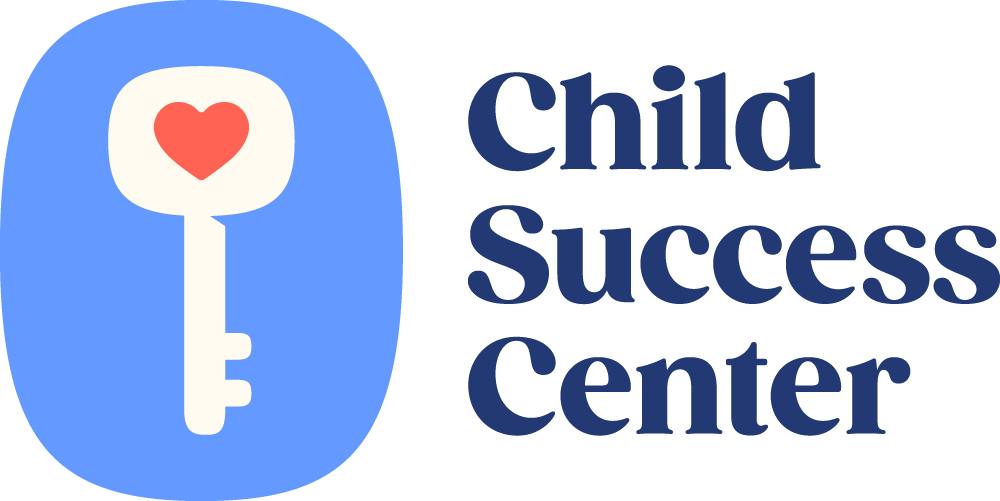The Role of Play in Speech Therapy
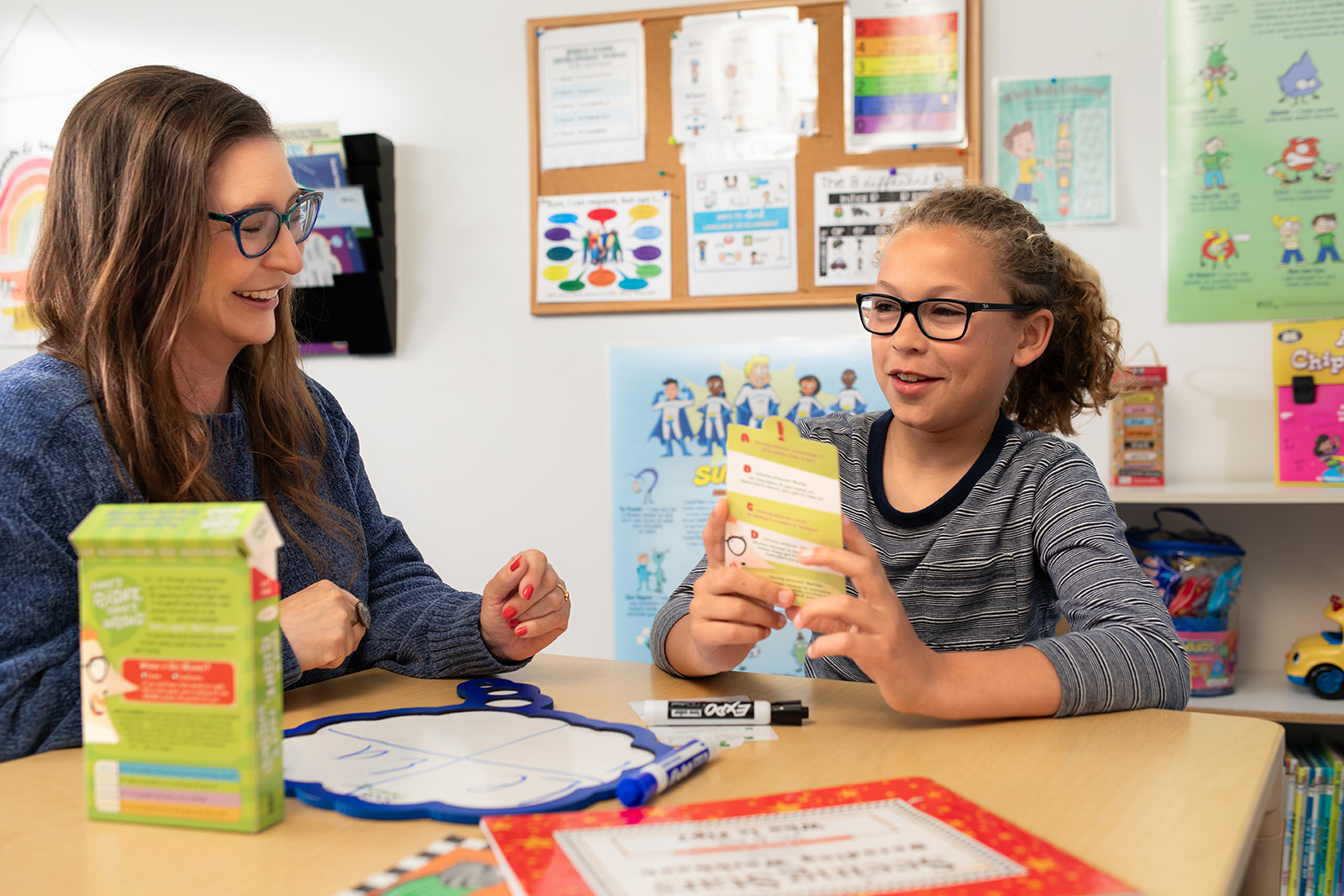
The Symbiotic Relationship of Play and Speech Therapy
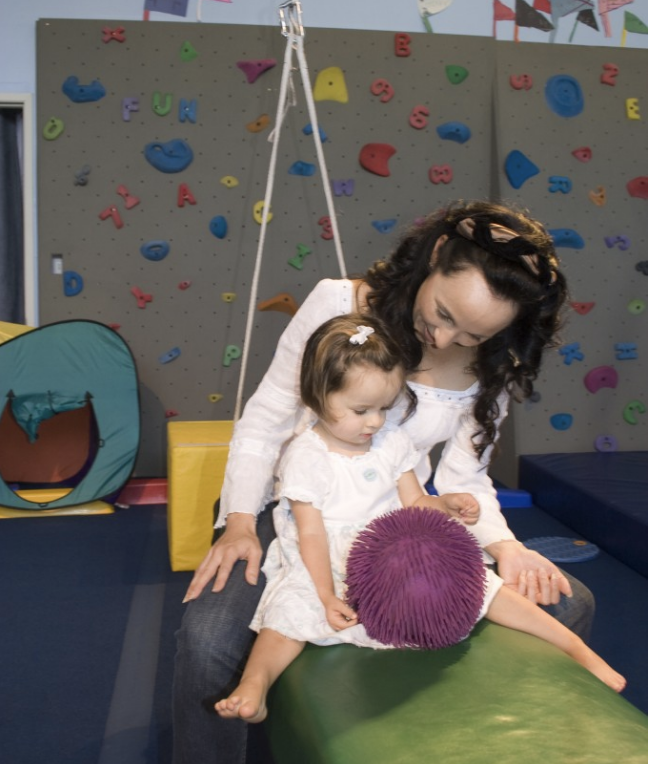 You may have wondered why your child’s speech therapist spends so much time playing with your child. We are often on the floor being silly, making animal sounds, talking into a banana, or pretending to make a fabulous spaghetti and meatball feast. It looks too fun to be therapeutic, right? But in reality, those are the moments where the magic happens. To understand why speech therapy involves so much playing, it helps to know why and how children play.
You may have wondered why your child’s speech therapist spends so much time playing with your child. We are often on the floor being silly, making animal sounds, talking into a banana, or pretending to make a fabulous spaghetti and meatball feast. It looks too fun to be therapeutic, right? But in reality, those are the moments where the magic happens. To understand why speech therapy involves so much playing, it helps to know why and how children play.
Why do kids play?
Play helps children to understand their world. A child can pretend to be an astronaut without ever leaving the ground, or they can pretend to be a doctor before they have started elementary school. Play helps children try new things, test out theories, and imagine new worlds. Communication is an essential piece of this process. A child who plays with another child or with an adult will use language to craft a shared, imaginary world. Delayed play skills may be a red flag that a child may also have delayed language skills.
Play skills develop in tandem with language skills.
Children typically say their first word at about one year of age. Before then, they ‘practice’ language when they watch others speak and when they babble. A one year old is likely to understand more than they say, and they may be able to respond to a simple request such as, “bring me your shoe.” That same one year old is starting to realize that objects they can’t see still exist. In other words, they may be able to retrieve those shoes even if they are out of sight, in another room.
By age two, a typically developing child will be expressing their wants and needs using spoken words. They may still do a lot of pointing and crying, but they can also combine two words for a variety of purposes, such as to greet someone (e.g., “Hi Mommy”), label objects (e.g., “big dog”), or to make requests (e.g., “want banana”). A two-year-old uses play to connect with another person and to practice using new words and phrases.
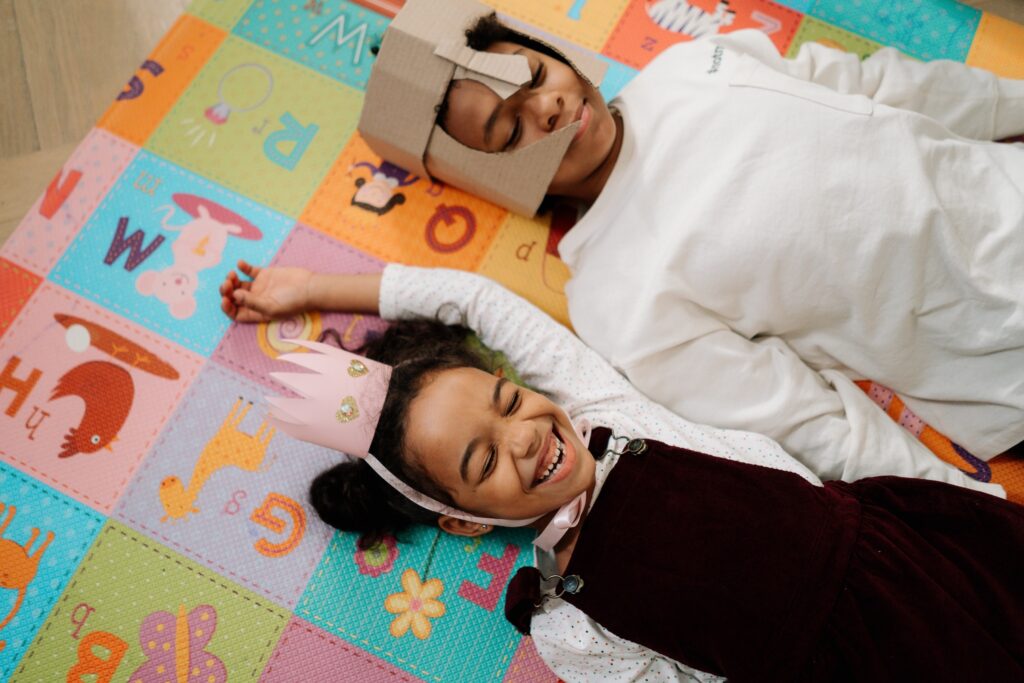 As children continue to grow, they express themselves using more complex words – learning to use words to describe concepts such as time, location, and size as well as to discuss abstract ideas and feelings. When language becomes more detailed and complex, play also becomes more sophisticated. Children progress from observing play, to playing by themselves, to playing next to other children (but separately), and ultimately to playing interactively with others. By the time a typically developing child is three years old, they are able to engage in imaginary play, and their play schemes may follow a sequence. For example, a child might pretend to choose ingredients, cook food, and then eat it. Or, they might pretend to be a doctor – inspecting and treating an injury.
As children continue to grow, they express themselves using more complex words – learning to use words to describe concepts such as time, location, and size as well as to discuss abstract ideas and feelings. When language becomes more detailed and complex, play also becomes more sophisticated. Children progress from observing play, to playing by themselves, to playing next to other children (but separately), and ultimately to playing interactively with others. By the time a typically developing child is three years old, they are able to engage in imaginary play, and their play schemes may follow a sequence. For example, a child might pretend to choose ingredients, cook food, and then eat it. Or, they might pretend to be a doctor – inspecting and treating an injury.
How and why play is used during speech therapy.
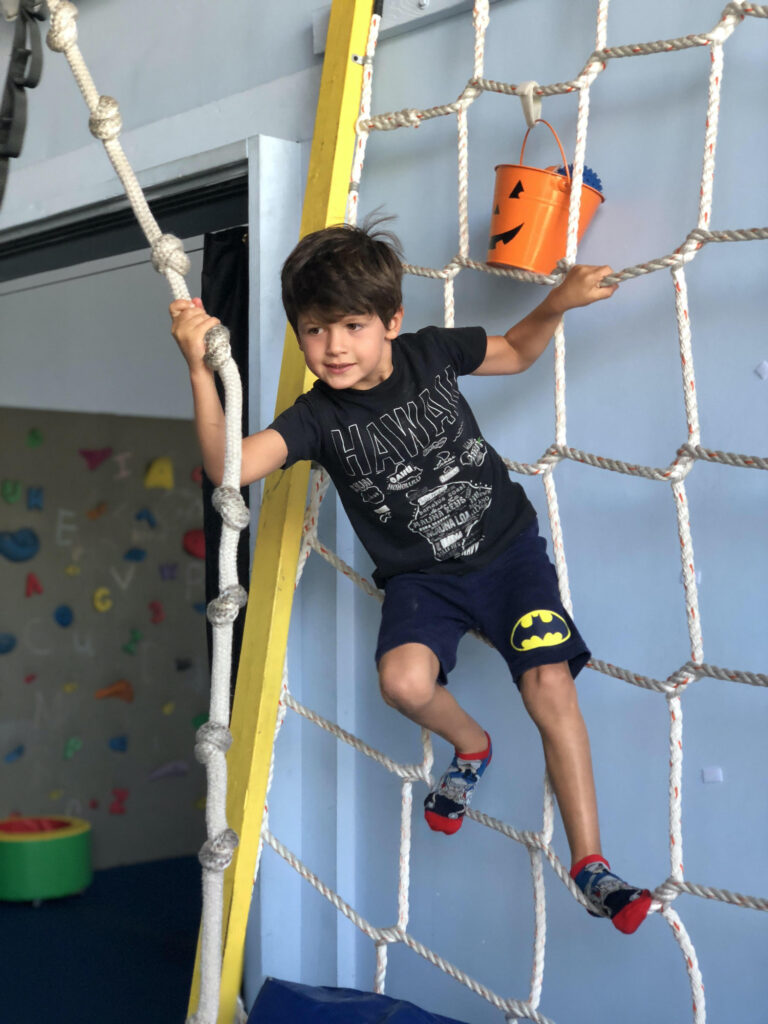 Since play and language skills develop in tandem, we often play during speech therapy to encourage language. Rule-based “game play” is often built into speech activities and/or combined with other forms of play to entice children to join in. We use “symbolic play” (pretend play) to get a children talking, since pretending requires the use of language in order to build a shared understanding. We also utilize our sensory motor gym, where we have the option to collaborate with our occupational therapists to engage in “practice play” (play that involves a lot of movement), which has the added benefit of helping children to maintain a state of sensory regulation, or optimal band of arousal, so they are happy and having fun while engaging in speech learning activities. During all these different forms of therapeutic play, we can incorporate gestures, facial expressions, and signed language in order to help build language skills in children whose verbal skills are delayed.
Since play and language skills develop in tandem, we often play during speech therapy to encourage language. Rule-based “game play” is often built into speech activities and/or combined with other forms of play to entice children to join in. We use “symbolic play” (pretend play) to get a children talking, since pretending requires the use of language in order to build a shared understanding. We also utilize our sensory motor gym, where we have the option to collaborate with our occupational therapists to engage in “practice play” (play that involves a lot of movement), which has the added benefit of helping children to maintain a state of sensory regulation, or optimal band of arousal, so they are happy and having fun while engaging in speech learning activities. During all these different forms of therapeutic play, we can incorporate gestures, facial expressions, and signed language in order to help build language skills in children whose verbal skills are delayed.
So, the next time you see your giggling child on the floor sitting next to a speech therapist who has a banana phone in her hand, rest assured that play is the fun way to build communication and language skills.
